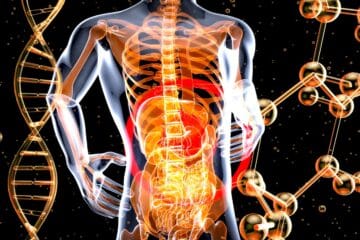Traditional Chinese Medicine (TCM) has a fascinating way of looking at the human spirit—not as one single thing, but as a collection of souls, each with its own role. The Po, often called the “corporeal soul,” is the part of us that’s deeply tied to the physical world. Unlike the Hun, its more ethereal counterpart that drifts into dreams and spiritual realms, the Po keeps us grounded in our bodies and instincts.
What Is the Po, Exactly?
The Po is all about our raw, instinctive reactions—the way we pull back from pain, crave food when we’re hungry, or feel our heart race in a moment of danger. In TCM, it’s said to live in the lungs and is linked to the Metal element, which ties it to autumn, protection, and the act of letting go. When your Po is strong, you feel steady in your body and can handle tough emotions like grief without getting stuck. But when it’s out of balance, you might notice anxiety, shallow breathing, or trouble moving on from past pain.
The Po’s connection to the lungs makes sense when you think about breathing as our most basic instinct. Issues like trouble breathing, skin problems (since the lungs are tied to skin in TCM), or a weakened immune system can all point to a Po that needs some care.
A Glimpse into History
The idea of the Po goes back to some of China’s oldest medical writings. The Huangdi Neijing (Yellow Emperor’s Inner Classic), put together around the 2nd century BCE, describes the Po as one of several souls that enter the body at birth, giving us physical vitality and rhythm. It’s seen as the “soul of the body,” the part that returns to the earth when we die, while the Hun floats off to the heavens. That earthy nature is why the Po is so tied to our survival instincts.
The Lingshu section of the Neijing dives deeper, talking about seven distinct Po souls, each handling different physical sensations and emotional responses. Later, during the Han Dynasty, texts like Zhang Zhongjing’s Shanghan Lun wove the Po into ideas about disease and healing. By the Tang and Song dynasties, scholars blended in Buddhist and Confucian ideas, and by the Ming Dynasty, Li Shizhen’s Compendium of Materia Medica listed herbs to strengthen the lungs and support the Po.
The Po in Today’s World
Today, TCM practitioners still lean on the Po to explain things like depression, anxiety, or chronic lung issues. If your Po is weak, you might find yourself holding onto the past—old relationships, possessions, or emotional wounds—which can show up as both mental and physical symptoms.
Interestingly, Western science is starting to see parallels. The Po’s role in instinct and physical response lines up with what we know about the autonomic nervous system. Studies on breathwork and mindfulness show how calming the body can lower stress hormones, which aligns with TCM’s approach to soothing the Po through breathing. Some modern clinics even combine acupuncture with psychotherapy to address what TCM would call soul-level imbalances, and researchers are noting similarities between TCM’s five spirits and concepts like emotional intelligence or somatic therapy.
How to Nurture Your Po
Here are some practical ways to support your Po, rooted in TCM wisdom:
Breathing Practices Since the Po lives in the lungs, breathing is key. Spending just ten minutes a day on deep breathing, mindful walking, or meditation focused on your breath can make a big difference in grounding your Po.
Food for the Soul TCM suggests warm, nourishing foods to support the Metal element, especially in autumn or when you’re feeling emotionally fragile. Think soups, herbal teas, or foods like pears, apples, and ginger. Cold, raw foods, on the other hand, can disrupt your body’s warmth and unsettle the Po.
Acupuncture and Acupressure Regular acupuncture targeting lung meridian points can strengthen the Po. If you’re into self-care, try gently massaging points like Lung 9 on your wrist to stimulate energy flow.
Movement That Flows Practices like tai chi or qigong, which pair fluid movement with steady breathing, help anchor the Po in your body. They sync your physical instincts with natural rhythms, promoting balance and vitality.
Processing Emotions The Po is tied to grief and other emotions linked to the lungs, so working through feelings is crucial. Journaling, talking with a therapist, or confiding in a friend can help. Some TCM practitioners also suggest herbs like reishi to build emotional resilience.
Why all this Matters
The Po gives us a powerful way to think about health—one that sees physical vitality and emotional well-being as deeply connected. Whether you’re navigating stress, grieving a loss, or just wanting to feel more rooted in your body, the Po offers practical tools backed by centuries of wisdom.
What makes this ancient idea so compelling is its reminder that true health goes beyond fixing symptoms. By nurturing the Po, we honor the idea that healing means caring for the whole person—body, mind, and soul.
References
- Huangdi Neijing (Yellow Emperor’s Inner Classic)
- Lingshu (Spiritual Pivot)
- Shanghan Lun by Zhang Zhongjing
- Compendium of Materia Medica by Li Shizhen


